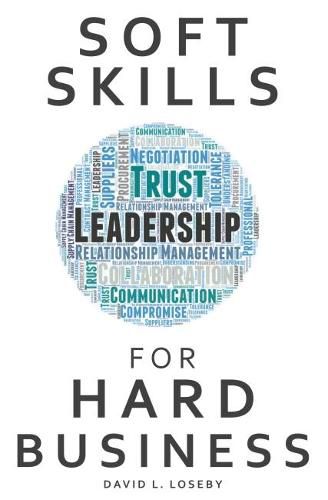Readings Newsletter
Become a Readings Member to make your shopping experience even easier.
Sign in or sign up for free!
You’re not far away from qualifying for FREE standard shipping within Australia
You’ve qualified for FREE standard shipping within Australia
The cart is loading…






Soft Skills For Hard Business explores the deep link between and the relevance of Behavioural Sciences in relation to the broad spectrum of Procurement, Supplier Relationship Management, Contract Management, Supply Chain Management and more. Current practice has generally focused on how procurement and the associated disciplines have been centred around logical and rational approaches, such as category management. This has further been reinforced by the use of many electronic platforms and systems and more recently digitalisation, AI, robotics and many other variants. However, despite the thoroughness and robustness of many of these processes, the profession has failed to consistently deliver competitive advantage that can be sustained from one enterprise to another. This book shows how aspects of Behavioural Sciences can be used to encourage significantly more complex and robust outcomes. These include chapters covering the foundations of Behavioural Science, understanding the ‘Soft Skills’ that we already employ, how to hone them and use them more efficiently, understanding biases and how to recognise and process them, game theory and its role, change management and overcoming cognitive hurdles and many other aspects.
$9.00 standard shipping within Australia
FREE standard shipping within Australia for orders over $100.00
Express & International shipping calculated at checkout
Soft Skills For Hard Business explores the deep link between and the relevance of Behavioural Sciences in relation to the broad spectrum of Procurement, Supplier Relationship Management, Contract Management, Supply Chain Management and more. Current practice has generally focused on how procurement and the associated disciplines have been centred around logical and rational approaches, such as category management. This has further been reinforced by the use of many electronic platforms and systems and more recently digitalisation, AI, robotics and many other variants. However, despite the thoroughness and robustness of many of these processes, the profession has failed to consistently deliver competitive advantage that can be sustained from one enterprise to another. This book shows how aspects of Behavioural Sciences can be used to encourage significantly more complex and robust outcomes. These include chapters covering the foundations of Behavioural Science, understanding the ‘Soft Skills’ that we already employ, how to hone them and use them more efficiently, understanding biases and how to recognise and process them, game theory and its role, change management and overcoming cognitive hurdles and many other aspects.